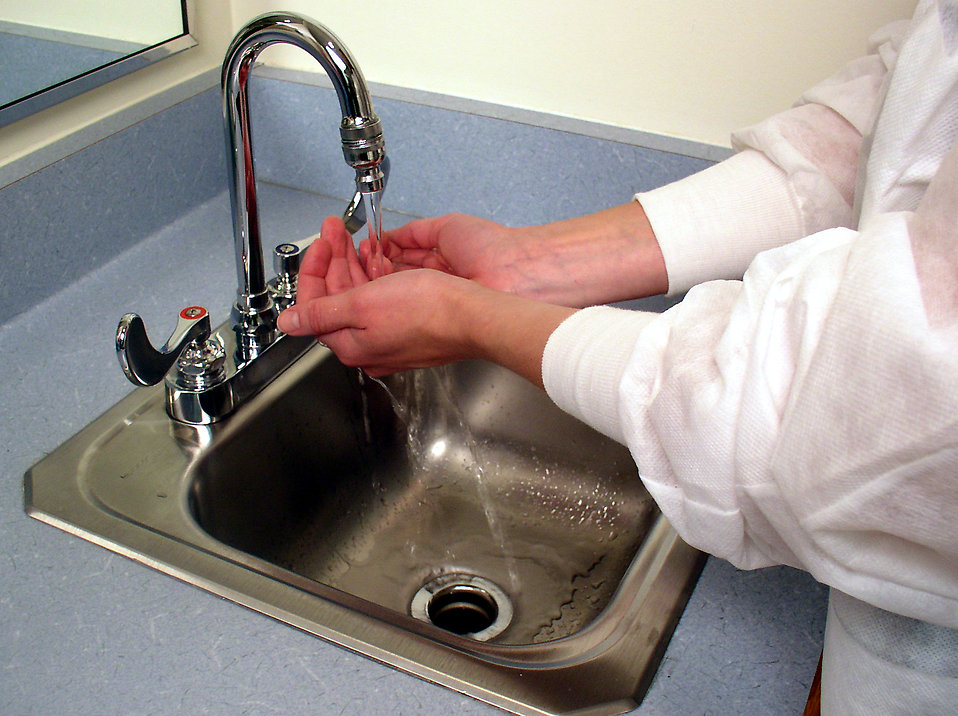 A mother of two children told us that she used to ensure her children washed their hands routinely. Not just when leaving the restroom, but when sitting down to eat, after petting animals, and after a host of other instances that she felt required additional hygiene.
A mother of two children told us that she used to ensure her children washed their hands routinely. Not just when leaving the restroom, but when sitting down to eat, after petting animals, and after a host of other instances that she felt required additional hygiene.
Some thought she was overdoing it to the point that she would be called a germophobe. Although not a derogatory term, it does refer to people who are obsessed with hand cleaning, but she didn’t care. After numerous times of her children processing this cleansing routine, they started to put their hands out for anti-bacterial soap when they would go to a restaurant. The woman advised us that although her children still get colds, she believes they probably would have been sick more often if not for the constant hand washing.
And maybe this mother of two had it right. If you have ever been on a cruise ship, most, if not all of them do obsess about cleanliness, and for good reason. No one wants to fall ill in a place where there is no way out, let alone it will ruin their vacation. Many ships are spotless, with staff constantly cleaning door knobs, stair rails, and other objects that are handled often.
Other organizations follow in her footsteps as well. In many businesses and institutions these days, their policies are to stay home if you feel ill, so as not to infect coworkers and many of these same companies supply antibacterial soap in the lunchrooms, hallways, and by restrooms – definitely a worthwhile endeavor.
But How Do Hospitals Stack Up?
In a CDC study on medical staff and hand washing, it was found that one in 25 hospital patients were subjected to Healthcare Associated Infections (HAIs). Other studies (in the US and worldwide) have also found metrics similar to the CDC study.
Given this, The World Health Organization (WHO) has provided “Five Moments of Hand Hygiene” guidelines that hospital staff members should adhere to when working with patients and also for their own safety. Specifically, the WHO points out times when staff should ensure they have cleansed themselves from bacteria. They stress washing hands prior to touching a patient or aseptic procedures, after exposure to bodily fluids, and after touching a patient and/or the patient’s surroundings.
Although these guidelines are practical and make sense, enforcing them is another story. Enter new technology. General Sensing, a technology company that specializes in using sensor networks to help increase the quality of care in hospitals has developed sensor devices that can monitor hygiene among hospital staff. In addition, it will subsequently ensure compliance with WHO guidelines.
Called Medsense, it is a series of beacons that monitor when and how a staff employee washes their hands and transmits data to a central station for review by both the hospital administrator as well as the staff member. The employee wears a badge that contains a chip to monitor their hygiene.
According to a 2014 study in the Journal of Infection and Public Health showed that the WHO guidelines were followed 25% more in one month when healthcare employees utilized the MedSense network than those that didn’t.
Some employees may have abstentions from wearing the badge; however, it is part of the technological progress towards better health care and this will surely take priority as it is a known fact that employees perform better when they know they are being observed. A phenomenon known as the Hawthorne Effect.
With the advent of 21st-century techniques and technology, expect to see an accelerated advancement in the quality of care for patients and employees in the medical field.
In addition, washing your hands frequently whether in or out of the workplace will help you to avoid illnesses that you may acquire personally. So, it doesn’t hurt to maybe have a little germophobe in you after all.



 Photo by
Photo by 

